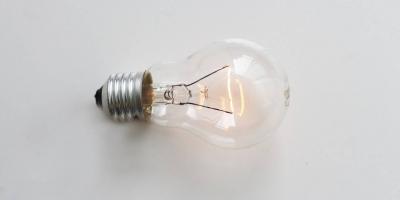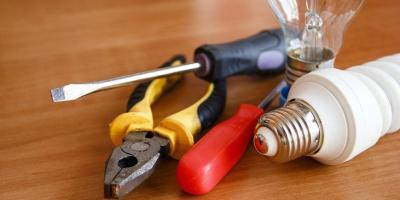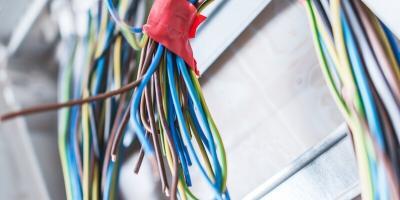It’s hard to imagine living the city life without electricity. From lighting and air conditioning systems to kitchen appliances-electricity makes our life more comfortable and efficient. But it comes with numerous risks and potential hazards.
Poor wirings, faulty appliances and a plethora of other issues can present electrical emergencies at any moment. And because problems caused by faults are unpredictable, preparing from any electrical emergency is very vital.
To save yourself and family from any electrical risks, here are the five things you should do in cases of electrical emergencies.
1. Emergency Plan
Preparing an emergency plan for various electrical emergencies can help you save properties and lives. Moreover, you can reduce the risks of injuries by learning how to conduct basic life support. It includes first-aid and cardiovascular pulmonary resuscitation (CPR).
In households or workspaces, getting familiar with emergency exits is also helpful. In worse cases, you should know where to go when fleeing from the fire. Also, it is beneficial to have fire extinguishers and implement safety precautions in using electricity.
Furthermore, having plans and precautions ready beforehand ensures that you won’t have trouble when an actual electrical emergency strikes. Moreover, it is life-saving to be familiar with these plans to increase your preparedness (this includes regular rubbish removal, house cleaning and general productive management of your property).
2. Handling Electrical Emergencies
There are typically four types of electrical emergencies: electric shock, electrical fire, power outage and downed power lines. Most of them pose severe threats and safety risks, but you can minimise injuries and damages by learning how to handle electrical emergencies.
Electric Shock
Electric shock is among the most dangerous electrical emergencies. The first thing that comes to your mind is helping that person. However, under any circumstances, you can get shocked or electrocuted from touching the person.
Always stay away from the incidence of electrocution. You can also try getting the person away from the contact point using a broomstick or any non-conductive materials. Or turning the appliance off can cut the source of electricity.
Call for help and limit the people getting near to the site of electric shock. Also, injured people need immediate medical assistance.
Electrical Fire
The exposure of light and flammable materials near overloaded and faulty wirings can instantly start a fire. In this case, the first thing to come to mind is cutting off the power supply at the source. It stops the fire on time and reduces the possibility of electric shock.
Some might think of using water rather than fire extinguishers to put it off. However, using water to put off electrical fires can cause an electric shock or electrocution. Besides, when the fire has become difficult to contain, you’ll need to escape immediately.
Also, people might get injured or suffocated in this case. Therefore, calling the fire brigade is a must and make sure to wait outside for them to arrive.
Power Outage
Power outages or blackouts are other common electrical emergencies. It can occur due to various reasons such as storms, downed power lines or energy shortage. Although it is common, it is also highly dangerous.
Turning off the main switch is essential to protect your appliances when the energy comes back. Also, check if the outage is due to a tripping circuit breaker or damaged wirings. Whatever causes it, seeking a professional electrician can solve the issue.
Preparing for a power outage can give you peace of mind. When a bad storm causes the power outage, it’s vital to equip yourself with an emergency kit, alternative lighting options, battery-powered radio and water supplies.
It is always crucial to treat power outages seriously. When power returns, it can cause an electric fire or electrocution if anything in the electrical system is mishandled.
Fallen Power Line
A fallen power line is destructive enough to damage nearby vehicles or electrocutes people. Treat any fallen power line as live cables and deal with it in extreme cautions to avoid the serious electrical hazards.
Furthermore, stay away from the power line and limit the people getting near to it. Don’t touch conductive materials and even trees as it has moisture to conduct electricity. Call the authority to reduce the danger and hassle of a fallen power line.
3. Call For Help
Calling for help is good practice when handling electrical emergencies. Time is very precious in seeking help, and it determines how successful you can be in handling emergencies.
In cases of electric shock or electrocution, it is important to call the emergency medical services. It applies to all other electrical emergencies when someone has burns, wounds or severe injuries.
Meanwhile, you can call the fire brigade in cases of a massive and uncontainable fire. And in cases for fallen power lines, immediately contact your local authorities or your local energy distributor.
It is also crucial to keep hotlines of your local emergency services, fire brigade, authorities or energy distributor. Knowing what and where to call is a life-saving technique in any unexpected future mishaps.
4. Administer First-Aid
In cases where injuries have occurred, performing first aid can help reduce the damage of the injuries to the victim. If there are unresponsive or not breathing victims, you can perform a cardiovascular pulmonary resuscitation (CPR).
Also, avoid applying ointments or oils to burns. You can place burns in cold water for 20 minutes and cover with clean dressings. Moreover, carefully pay attention to the needs of injured victims.
Although first aid is beneficial, you need proper training to do some of it. You might need the extra effort and time to learn first aiding. Getting a chance of saving your loved ones from any electrical emergencies far outweighs the effort you need to learn first aid.
5. Electrical Emergency Post-Cases
After cutting off the electric supply or the primary source, it is crucial to seek assistance from authorized electricians to see any problems. In a situation where an emergency has happened, it is necessary to check the whole electrical system.
Whether you experience electrical emergencies first hand or not, electrical inspection and maintenance is the key to avoid future mishaps in your household. In the worst scenario, planning and preparedness can save you from the dangers and risks.
Conclusion
Electrical emergencies can happen at any time. Emergency planning and handling can save you from any electrical-related accidents. Knowing what to do in the actual scenario and who to call are very necessary.
Preparedness is also the key to surpass any electrical emergencies. But as anyone’s mantra says, prevention is better than cure. You can prevent these electrical emergencies when there is regular and thorough inspection and maintenance of the electrical system.
Gordon Powers can help you avoid these electrical emergencies. With our licensed level 2 electricians, we can check what can go wrong in your whole electrical system and power lines to prevent future accidents.
We are your best partner when it comes to electrical emergencies. Call us today on (02) 9199 7480.










